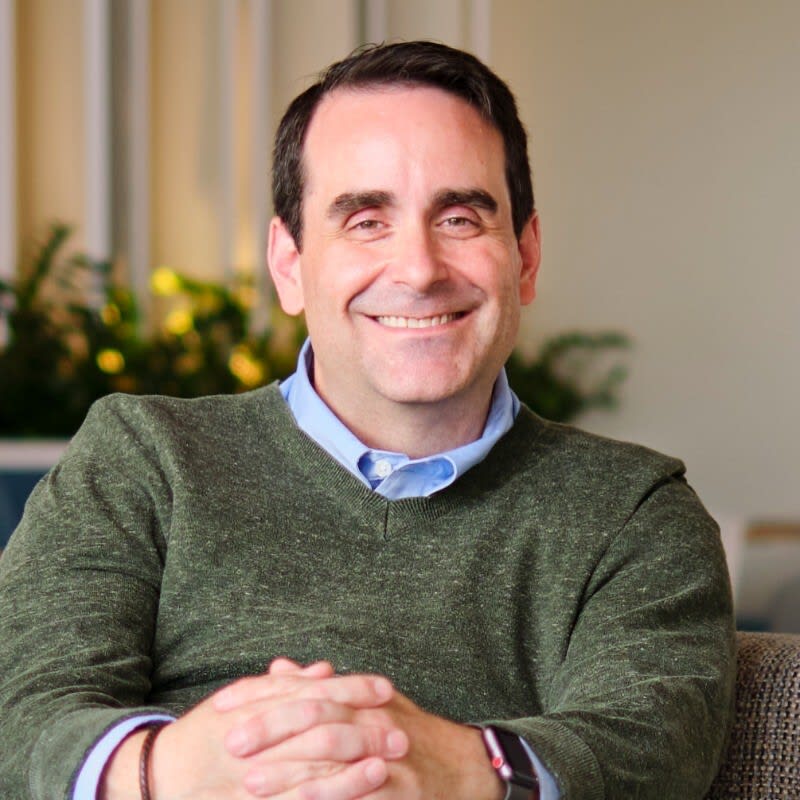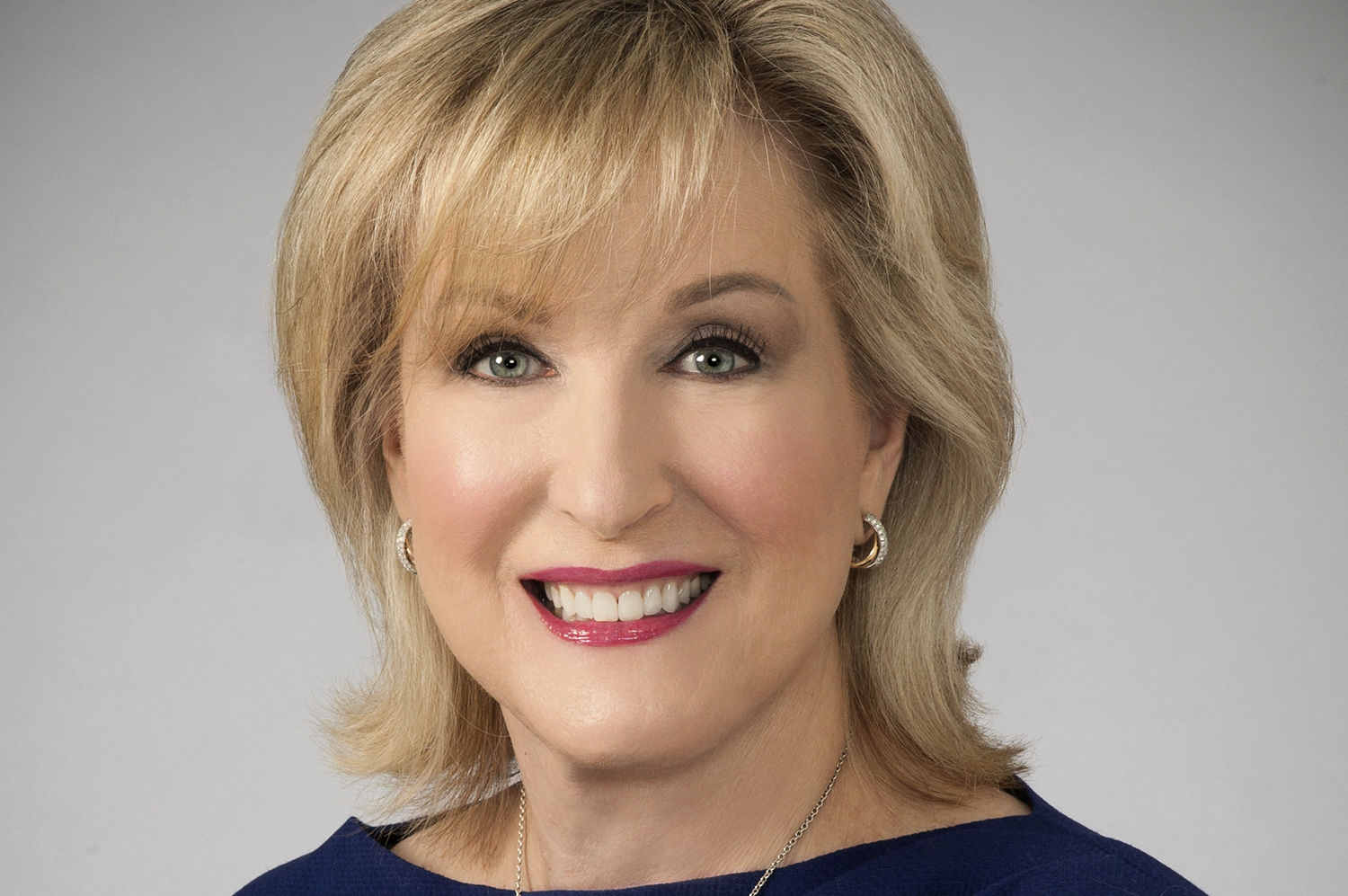John Brothers Leads By Listening

Image: Courtesy Photo
The Charles & Margery Barancik Foundation has named John Brothers as its next president and CEO, effective Dec. 1, marking the end of Teri Hansen’s decade-long tenure as the foundation's founding leader. Brothers arrives in Sarasota after nearly 10 years at the helm of the T. Rowe Price Foundation and T. Rowe Price Charitable, where he oversaw $750 million in assets, distributed hundreds of millions in grants and helped pioneer a model of trust-based philanthropy that drew the attention of more than 300 global brands.
The leadership search drew hundreds of applicants from across the country. After Hansen announced her retirement in March 2025, the board launched a national search that formally began in May, setting off a highly competitive process to find the foundation’s next leader.
Brothers' career spans four decades and nearly 50 countries, from church basements in Minnesota to corporate boardrooms in Baltimore, from lecturing at NYU and Harvard to advising governments in Northern Ireland. A former case manager turned philanthropic strategist, he's built a reputation for listening first and pushing philanthropists to meet communities where they are.
At 52, he’s moving to Sarasota’s Indian Beach neighborhood, drawn by its arts scene, proximity to the water and a Jamaican soul food spot on Martin Luther King Jr. Way. It’s a far cry from Baltimore’s tight 10-by-10-mile grid, but to Brothers, the dynamics of place-based philanthropy feel familiar.
The following interview has been edited for length and clarity.
You’ve led philanthropy on a global scale. What drew you to a community-based foundation in Sarasota?
"I led philanthropy in a couple of different contexts globally, but most of what we did was in Baltimore. They call it 'Small-timore' because it’s got this small-town vibe. From a geographic standpoint, it’s not that different from Sarasota. I’m an Orioles fan and they [play spring training] here, so I’d already been down about nine times, sometimes for spring training, sometimes just bouncing between Tampa, Sarasota and Orlando.
"I love place-based work—working in a community and making the ground under people’s feet better. That’s satisfying to me. I’ve traveled all over the world and people always say, 'This place is a little different.' What that usually means is that the place is special to them. From a social change perspective, the dynamics here feel familiar. You’ve got folks struggling for different reasons, people worrying about where their next meal comes from, and I get the good fortune to work in philanthropy.
"I might bring perspective from other places—like if something is working in Seattle, maybe we can look at that—but my job is to respect the people who’ve been here doing the work. I still have to earn my place, and the best way to do that is to be a good listener."
You began your career as a case manager in the Midwest. How does that early ground-level work shape how you lead today?
"I think of my career in four phases. First, I was on the front lines. I brought people together in church basements, community centers, even at dinner tables. That work taught me how services are actually delivered—what it looks like for a single mom who needs child care, for example.
"The second phase was as a 'pracademic.' I started at NYU, helping nonprofit leaders get better at what they do. It was a side hustle that became my main hustle. I was traveling 300 days a year, teaching at universities, writing books.
"The third phase was philanthropy. I spent a decade at T. Rowe Price in Baltimore, helping craft some really innovative approaches that others have since modeled.
"And before all that, I grew up in deep poverty. I often say I know soup from the ladle—from being the soup ladler, receiving the soup, to funding and managing the soup ladling. During my doctorate, I donated what would have been spent on my hotel stays and spent three years living part-time in a domestic violence shelter in Boston called atask.org, working on transitional housing for immigrant women and children. Proximity matters a lot to me.
"I’ve also taught in maximum-security prisons in Maryland. These are people wrapped in policy, and I go in without a political position—I just want to learn. If someone wants proximity to an issue, you have to get knowledge from people with lived experience. That’s a big part of how I participate."
You’ve been a national leader in trust-based philanthropy. How do you define “trust” in this context?
"When I arrived at T. Rowe, the city was on fire after Freddie Gray’s death. People at the firm had all kinds of beliefs, but we agreed to sit down and listen. We sat in libraries, living rooms and community centers with community leaders. They told us what mattered.
"Philanthropy can come in from the outside and treat communities poorly. We developed our own theory of philanthropy, and became a leading force in corporate philanthropy—not because we were the biggest givers, but because of how we did the work. After George Floyd, more than 300 companies came to us asking how to build authentic community relationships. We told them to shut up and listen.
"What I love about Barancik is that they care about the way they do the work. It’s not about pomp and circumstance or putting on your Sunday best to meet with me. If someone has to do that, you lose the point. It’s not about your name on a plaque or a room named after you—it’s about honoring the community leaders who make the work happen."
Sarasota has both immense wealth and deep inequities. How do you think about philanthropy’s role in that polarity?
"It’s not unique to Sarasota. In Maryland, one of the most philanthropic states, those dynamics exist, too. Proximity is crucial, as are the assets of local communities.
"If I look at a neighborhood and conclude only that it has needs, shame on me. The work should be led by the community. People know what they want for their kids and neighborhoods; they have the better map. My job is to listen, support infrastructure, and walk alongside that self-determination with the resources the Baranciks left. Ownership of solutions by the community is far more sustainable than anything imposed from the outside."
What have your first conversations with local nonprofit and civic leaders revealed so far?
"That people love Sarasota and feel strongly about it. That tells me how important it is for me to listen well. In Baltimore, it took me years to develop my own perspective. I don’t think it’ll take that long here, but I know it’ll take time.
"In the meantime, my job is to be out in the community, listening to different segments of people, gathering perspectives. Nationally, I have plenty of opinions. Locally, I haven’t earned them yet."
Are there sweeping changes ahead, or are you continuing the Barancik legacy as it stands?
"I don’t have a list of sweeping changes. I’m bringing perspective from Baltimore and other places, but I couldn't care less about attaching my name to anything. The biggest sign of success will be my ability to listen. I literally have Post-its on my desk that say, 'Shut up.'"
If we fast forward five years, what do you hope people here say has changed because of the foundation’s work?
"I love how humble [the Barancik Foundation] is. At T. Rowe, we didn’t put our name on things either. We put the name of a community leader on it—the people who made it happen.
"In Baltimore, when I started, the No. 1 issue during the unrest was access to fresh produce. You had to take two buses to get a cucumber. We invested seed money in a local organization, and today, that neighborhood has some of the highest healthy food access in the city. There’s no sign saying 'This cucumber brought to you by T. Rowe Price.' The community owns it.
"That’s what I want here: philanthropy working behind community members, propelling their solutions, with no need to see our name on it."
What’s something about philanthropy you wish more people understood?
"It’s more than writing a check. Philanthropy brings people together—donors, families, board members, communities. It can seed efforts that go to the next level, but you have to pay attention to how you do it. If you care, you invest time in understanding good philanthropy and having the debates that make it better.
"If you don’t, you can just write checks and people will take them. But if you do, there’s a world of knowledge and people to draw from."
When you’re not immersed in strategy or grantmaking, how do you recharge—and what are you excited to explore here?
"I have Irish skin, so I’ll keep sunscreen in business. I’ve lost a lot of weight running, so I’m excited to be outside and close to the water. I’m huge into the arts. I was once a poor hip-hop DJ—my name was Funky Fresh Filibuster. I love Spanish and Afro beats, gritty diners, and being around creative energy.
"This is where I’m planting myself for a long time. I just want to enjoy this community."



